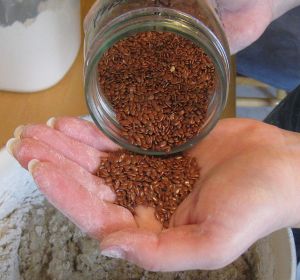 Every year I hear stories of people who have experienced gastric upset during the holiday of Passover. In fact, some of the problems encountered by eating too much matzoth include constipation severe stomach pains and even obstructive bowel disorders. The problem is that matzoth, made from white flour, contains almost no fiber, is dry, and can expand in the intestinal tract when it mixes with fluid causing obstruction and pain. Here are a few tips to keep you healthy this year.
Every year I hear stories of people who have experienced gastric upset during the holiday of Passover. In fact, some of the problems encountered by eating too much matzoth include constipation severe stomach pains and even obstructive bowel disorders. The problem is that matzoth, made from white flour, contains almost no fiber, is dry, and can expand in the intestinal tract when it mixes with fluid causing obstruction and pain. Here are a few tips to keep you healthy this year.
- First, try eating whole-wheat matzoth, the Shmura matza we buy for our house is made of whole-wheat and has a higher fiber content. Consuming more fiber can help prevent constipation.
- Drink a glass of water before eating matzoth the water will help the matzoth expand in the stomach before reaching the intestinal tract and fill you up faster preventing over eating.
- If you have the custom of eating foods like matzoth brie and matzoth balls you will find they are easier on the stomach–because they have been allowed to be soaked in water first before being prepared.
- While eating matzoth is a mitvah on Passover there is no additional blessing if you eat the whole box and make yourself sick. Instead try eating foods like vegetables, soups and casseroles made from potatoes.
- Make your Matzoth brie more nutritious by adding vegetables to the preparation—here is how we make matzoth brie in our house to increase fiber content.
- Pieces of Shmurah Matzoth
- Eggs beaten
1. medium chopped onion
½ chopped bell pepper
1 large tomato chopped
2 Tablespoons of cooking oil
Salt and pepper to taste (garlic powder optional)
Soak two round whole-wheat shmurah matzoth (broken in pieces) in warm water for 5 minutes and than transfer to beaten egg mixture.
Sauté onion until golden brown and than add bell peppers after a few minutes add soaked matzoth and cook until slightly browned add tomatoes and sauté an additional 5 minutes, salt pepper as needed and serve (may add garlic powder as well). We also like to make matzoth brie with mushrooms, spinach and other vegetables we have in the house.
Have a very healthy and happy Passover!









